‘Fix at Six’ Group Wants I-94 Expansion Delayed For Civil Rights Report
Despite federal blessing for 8-lane expansion, project faces civil rights review.
A coalition of opponents wants to pump the brakes on a $1.7 billion expansion of Interstate 94 through Milwaukee.
The Coalition For More Responsible Transportation doesn’t want the project, endorsed by the Federal Highway Administration (FHWA) earlier this month, to continue until a federal civil rights review is completed.
At a press conference Wednesday opponents reiterated their position that the expansion would benefit white, suburban commuters at the expense of the majority-minority residents, many of whom don’t own vehicles, that live near the 3.5-mile freeway corridor.
The coalition has rallied behind the ‘Fix at Six’ moniker, which calls for rebuilding the roadway with safety improvements, but not expanding the freeway to eight lanes.
Pastor Joseph Jackson, Jr. of Friendship Baptist Church and vice president of Milwaukee Inner-city Congregations Allied for Hope (MICAH) led the event.
“The civil rights complaint has not yet been addressed,” said Jackson. “What’s the hurry?”
Attorney Dennis Grzezinski is representing the complainants. Grzezinski previously successfully represented MICAH in challenging the Zoo Interchange project.
“It’s not rocket science that the folks who are going to benefit are those who are wealthier, probably whiter, rush-hour commuters during rush-hour times,” said the attorney. He said the harms, including noise and air pollution with resulting health issues, would fall on those who live near the highway and those residents are disproportionately ethnic and racial minorities. “One of the last things this city needs is more square miles of pavement.”
The Wisconsin Department of Transportation (WisDOT) previously estimated the project would cost $1.2 billion in 2021, but new estimates peg that cost at $1.47 billion in 2023 dollars and $1.74 billion when considering the year each expense would occur.
Construction, under the current schedule, is to begin in 2025 and be completed by 2031.
The plan calls for expanding the roadway to a minimum of four lanes in each direction between N. 16th and N. 70th streets.
The project was initially shelved in 2017 for a lack of funding, but Governor Tony Evers resurrected the idea in 2020 and attempted to fast-track federal re-approval of a 2016 plan. In April 2021, state officials agreed to conduct a supplemental study to examine other options or traffic pattern changes. That supplementary process officially concluded on March 8 with the FHWA’s “record of decision” in favor of the expansion plan.
The coalition hasn’t ruled out a lawsuit. It already filed the civil rights complaint in January 2023 for perceived deficinies in the plan.
“The coalition is currently reviewing the thousands of pages in the Final [environmental impact study], its appendices, and its supporting documents to determine whether and to what extent the state and federal transportation agencies have corrected those deficiencies,” said the attorney in a statement.
Much of the construction cost would be covered by the federal government.
According to the WisDOT study, the six-lane option would cost only between 3% to 6% less. The actual ‘Fix at Six’ plan authored by transportation planner Mark Stout was not the exact proposal the state evaluated.
Redesigning the central Stadium Interchange as a diverging diamond interchange is expected to save up to $90 million versus a previous “hybrid” design. But the supplemental study found that an additional five acres of land are needed from the American Family Field property. The project would need to work with the Southeast Wisconsin Professional Baseball Park District to replace an estimated 600 parking spaces.
The project as a whole would require the state to acquire 54 acres of land, including displacing a handful of businesses in the Menomonee Valley.
WisDOT has backed the project because of the condition of the roadway, which was originally built in the 1960s, and the need for safety improvements, including the removal of left-hand entrances or exits.
The press conference was held near the Zablocki Drive Bridge over the freeway. Additional speakers included master naturalist Ann T. Bowe, Black Leaders Organized for Communities political director Kyle Johnson, 350.org facilitator Julie Enslow and Healthy Climate Wisconsin member Rene Settle-Robinson.
Civil rights complaints about freeway expansion have also been filed in Texas over highway expansions in Houston and Austin. The Houston complaint led to the pausing of the $9 billion project and, ultimately, changes to the project. The Austin complaint was filed in January.
If you think stories like this are important, become a member of Urban Milwaukee and help support real, independent journalism. Plus you get some cool added benefits.
More about the I-94 East-West Expansion
- ‘Fix at Six’ Group Wants I-94 Expansion Delayed For Civil Rights Report - Jeramey Jannene - Mar 20th, 2024
- Coalition Admonishes I-94 expansion Record of Decision - Sierra Club - Mar 20th, 2024
- Feds Approve Interstate 94 Expansion - Jeramey Jannene - Mar 8th, 2024
- Advocates condemn approval of I-94 expansion - Sierra Club - Mar 8th, 2024
- I-94 East-West Project Receives Federal Approval - Wisconsin Department of Transportation - Mar 8th, 2024
- Federal Government Investigating Civil Rights Complaint About I-94 Expansion - Evan Casey - Jan 11th, 2024
- Op Ed: 8-Lane I-94 Expansion Is Worst for Carbon Emissions - Cassie Steiner, Cheryl Nenn and Terry Wiggins - Dec 18th, 2023
- Residents Concerned I-94 Widening Would Increase Flooding In Nearby Neighborhoods - Jonah Chester - Aug 10th, 2023
- Eyes on Milwaukee: I-94 Expansion Public Comment Deadline Extended - Jeramey Jannene - Jan 6th, 2023
- I-94 East-West study public comment period extended to January 31, 2023 - Wisconsin Department of Transportation - Jan 3rd, 2023
Read more about I-94 East-West Expansion here
Transportation
-
MPS Makes the Case for Referendum
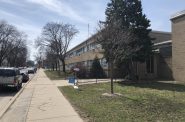 Mar 23rd, 2024 by Graham Kilmer
Mar 23rd, 2024 by Graham Kilmer
-
Wisconsin Has $78 Million Federal Funds For EV Charging Stations
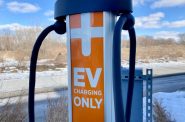 Mar 20th, 2024 by Erik Gunn
Mar 20th, 2024 by Erik Gunn
-
County’s Paratransit Service Shows Improvement
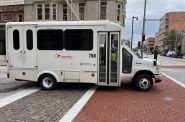 Mar 20th, 2024 by Graham Kilmer
Mar 20th, 2024 by Graham Kilmer


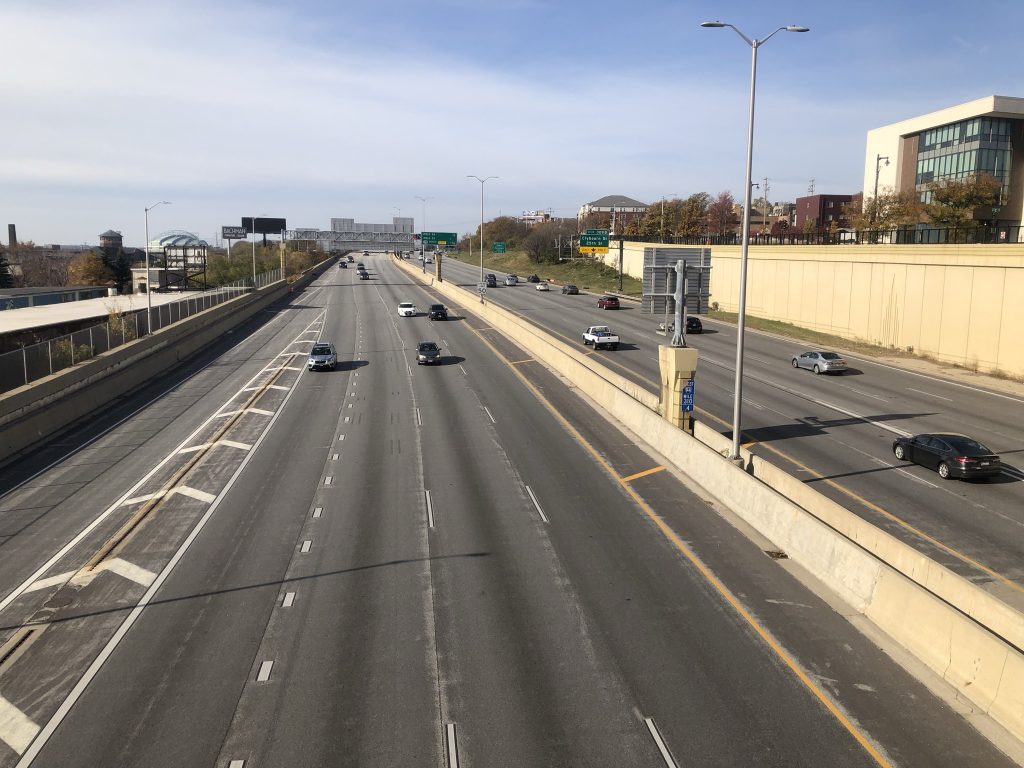
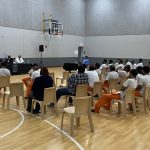
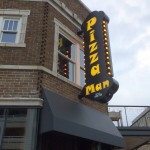

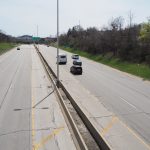



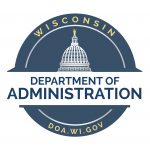







The civil rights review has merit and should be pursued. In conjunction, examine how the highway study failed to show the necessity or efficacy of expanding to eight lanes. The global pandemic disrupted travel, so the environmental review must be re-done to see if there are any peak travel times at present. Further, the highway study failed to show how widening the roadway will solve congestion. Jake Blumgart (2022) describes how expanded highways tend to invite still more traffic (called induced traffic) and that decision-makers regularly ignore this phenomenon despite decades of research on the topic (Todd Litman, “Generated Traffic and Induced Travel”). By failing to address induced demand, widening highways creates more traffic, which leads to further highway capacity problems (Transportation for America, 2020 “The Congestion Con: How more lanes and more money equals more congestion”). Widened highways also have subsequent costs of automobile crashes. The cost of these crashes reduces savings from any temporary congestion reduction, as Robert Steuteville wrote in the CNU Journal (Steuteville, 2022). Therefore, widening highways to reduce congestion is an unsustainable and expensive cycle and suggests circular (Singer, 2013) or invalid (Jacobs, 2004) reasoning. The result is that highway departments spend large amounts of money to make congestion problems worse, cause deaths, cause harm to communities, and increase costs.
I am disappointed by the lack of objectivity in this report. The federal government did not “endorse” this project, they approved WISDOT’s plan. “Fix at Six” is not a “moniker”, it is an alternative plan created by transportation expert Mark Stout that addresses safety concerns while maintaining the current footprint. The reporter indicates that the Fix at Six option would cost only between 3% to 6% less. Only? I may be mistaken, but I think that 6% of $1.75 billion dollars comes to around $10million. Regardless, it is a large sum of money that could be going toward enhancing our transit system and making our streets safer – which would serve the residents of Milwaukee while reducing emissions. You can find Fix at Six at https://fixatsix.org/
These folks are just trying to leverage civil rights to blackmail the DOT to devote some cash to their pet projects. This lacks honesty and I think it’s insulting to Black and Brown people to use them for this. Either plan that was studied required one house to be demolished, and while I haven’t checked the census, I believe it’s in a majority white area.
Everyone nearby will have less air pollution when those daily backups of idling cars are lessened and sound barriers go up, and they city will be a better place.
Get rid of the left hand entrance/exit ramps and the speeders/weavers. Three lanes in each direction is more than sufficient for the volume of cars on this stretch of road.
If folks would follow the rules of the road, stop speeding, stay off their phones and exhibit some courteousness when driving, there would not be these problems on the local highways. The traffic volume does not justify more lanes.
If these stated problems are not addressed, more lanes will simply make the problem worse.